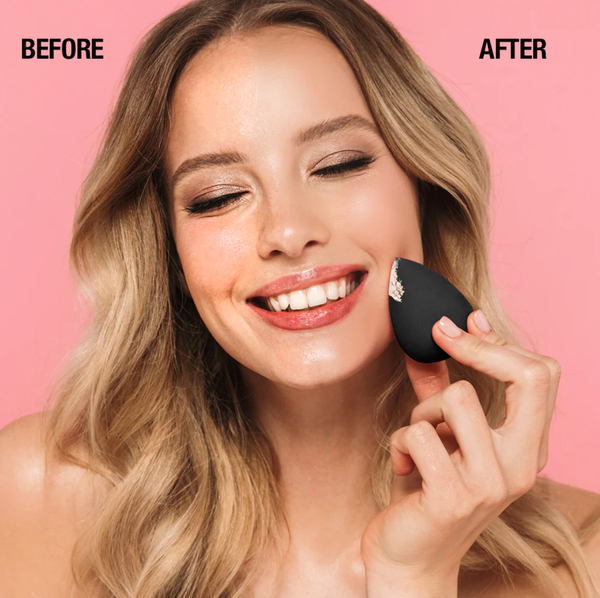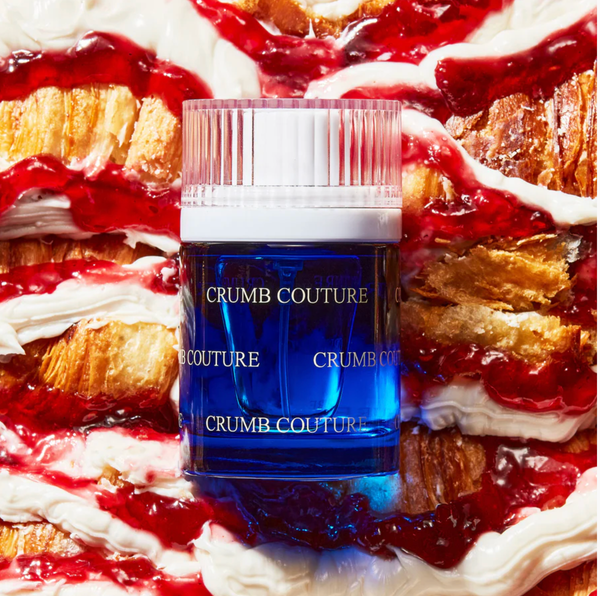Phthalates | The Toxic Truth Revealed
Phthalates in beauty and grooming products may disrupt hormones, affect reproductive health, and pose developmental risks. Opt for phthalate-free, clean beauty and grooming alternatives.

What Are Phthalates?
Phthalates are a group of chemicals used to make plastics more flexible and durable.
In the beauty and grooming product industry, they are commonly found in products such as nail polish, hair sprays, aftershave lotions, soaps, shampoos, and perfumes.
The most common types used in cosmetics include:
- Diethyl phthalate (DEP): Often used in fragrances to make the scent last longer.
- Dibutyl phthalate (DBP): Found in nail polishes to prevent cracking.
- Dimethyl phthalate (DMP): Used in hairsprays and other products to create a flexible hold.
Health Concerns
Phthalates have been associated with various health issues, particularly with prolonged exposure.
Some of the potential risks include:
- Endocrine Disruption: Phthalates can interfere with the body's hormone system, potentially leading to reproductive issues, developmental problems, and other hormonal imbalances. Research shows that phthalates can mimic or block hormones and disrupt the body's normal hormone functions.
- Reproductive Health Issues: Studies suggest that phthalates may affect fertility and are linked to lower sperm count in men and early puberty in girls.
- Developmental Effects: Exposure during pregnancy has been associated with adverse effects on the developing fetus, potentially leading to developmental delays and behavioral issues.
- Cancer Risk: Some animal studies have suggested a potential link between phthalates and certain types of cancer, although more research is needed to confirm this in humans.
Regulatory Status
Different countries have varying regulations regarding the use of phthalates in cosmetics:
- European Union: The EU has banned the use of several phthalates in cosmetics and personal care products .
- United States: The FDA does not have specific regulations for phthalates in cosmetics, but several types are restricted in children's products by the Consumer Product Safety Commission (CPSC) .
- Canada: Health Canada has taken steps to limit the use of certain phthalates in cosmetics.
Phthalate Alternatives
Given the concerns, many clean beauty and grooming brands are moving away from using phthalates and opting for safer alternatives. Some of these include:
- Plant-based plasticizers: Derived from natural sources and do not carry the same health risks as phthalates.
- Natural oils and waxes: These can replace phthalates in products like nail polish and lotions to provide similar benefits.
- Silicones*: Used in hair care products for flexibility without the health concerns associated with phthalates.
*A quick note from Jonquil Beauty regarding Silicones:
The definition of "clean beauty" can vary. Some brands and certifying organizations may exclude silicones due to their synthetic nature and environmental impact, while others may allow certain types deemed safe for human use. Clean beauty emphasizes ingredient transparency and safety. Consumers are encouraged to read labels and research ingredients to align with their personal values and concerns.
Phthalates are prevalent in many conventional beauty and grooming products, however, their potential health risks have led to increasing scrutiny and regulation.
For consumers interested in clean beauty and grooming, it's wise to look for products labeled as phthalate-free and to support brands that prioritize safe, non-toxic ingredients.
Educating oneself on ingredient labels and understanding the potential impacts of phthalates can help make more informed choices in the quest for safer, healthier beauty and grooming products and will help you discover your comfort level with certain beauty and grooming products classified as "clean".
References
- Kavlock, R., et al. "Phthalates and Cumulative Risk Assessment: The Tasks Ahead." Environmental Health Perspectives, vol. 110, no. 6, 2002, pp. 797-800.
- Jobling, S., et al. "A Variety of Environmentally Persistent Chemicals, Including Some Phthalate Plasticizers, Are Weakly Estrogenic." Environmental Health Perspectives, vol. 103, no. 6, 1995, pp. 582-587.
- Hauser, R., et al. "Semen Quality and Sperm DNA Damage in Relation to Urinary Concentrations of Phthalate Monoester and Oxidative Metabolites." Epidemiology, vol. 18, no. 3, 2007, pp. 201-209.
- Colón, I., et al. "Identification of Phthalate Esters in the Serum of Young Puerto Rican Girls with Premature Breast Development." Environmental Health Perspectives, vol. 108, no. 9, 2000, pp. 895-900.
- Swan, S. H., et al. "Prenatal Phthalate Exposure and Anogenital Distance in Male Infants." Environmental Health Perspectives, vol. 113, no. 8, 2005, pp. 1056-1061.
- Hurst, C. H., and Waxman, D. J. "Activation of PPARα and PPARγ by Environmental Phthalate Monoesters." Toxicological Sciences, vol. 74, no. 2, 2003, pp. 297-308.
- European Chemicals Agency. "Phthalates in Articles." ECHA, 2021. Link.
- U.S. Food and Drug Administration. "Phthalates." FDA, 2021. Link.
- Health Canada. "Phthalates Regulations." Government of Canada, 2021. Link.
- Gilbert, S. G. "A Small Dose of Toxicology: The Health Effects of Common Chemicals." CRC Press, 2004.
- Cosmetics Info. "Phthalates Facts." Cosmetics Info, 2021. Link.
- Schmid, P., and Schlatter, C. "Excretion and metabolism of di(2-ethylhexyl) phthalate in man." Xenobiotica, vol. 21, no. 8, 1991, pp. 927-936.
Discover the world of beauty with Jonquil Beauty! We're your trusted source for straightforward and authentic beauty product insights and reviews. Whether you're a loyal blog subscriber on our website www.jonquilbeauty.com or part of our fantastic community on Facebook, Instagram (@jonquilbeauty_official), or Pinterest (@jonquilbeauty), we're here to empower you with all things beauty.
But that's not all! We're also proud to partner with several incredible companies through affiliate marketing. When you click on our affiliate links, it might take you to their websites. Don't worry, though – we've got all the details in our disclaimer, so you can get the full scoop on our affiliate relationships.
Here's the exciting part: your purchases made through our affiliate links won't cost you an extra penny. Instead, they contribute a small commission to support us in maintaining our website and keeping our social media platforms vibrant and engaging. Your support means the world to us, and we're grateful for every click, like, and purchase that helps us thrive. Thank you for being a part of the Jonquil Beauty community and for helping us stay fabulous!






